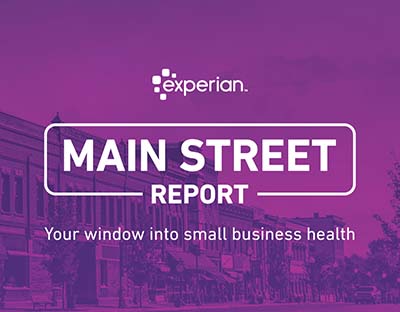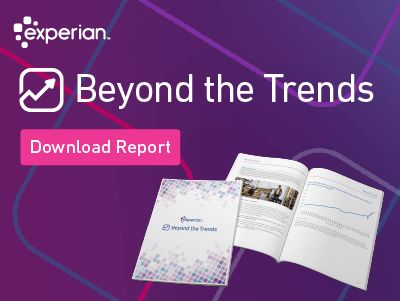
Welcome to the Experian Thought Leadership Hub
Gain insights into the fast-changing world of consumer and business data through our extensive library of resources.
25 resultsPage 1
 Infographic
Infographic
There are many variations of passages of Lorem Ipsum available, but the majority have suffered alteration in some form, by injected humour, or randomised words which don't look even slightly believable.
If you are going to use a passage of Lorem Ipsum, you need to be sure there isn't anything embarrassing hidden in the middle of text.
All the Lorem Ipsum generators on the Internet tend to repeat predefined chunks as necessary, making this the first true generator on the Internet.
 Report
Report
 Report
Report
Outstanding performance in the third quarter is a great headline focused on the resiliency of the American consumer. Business confidence and financials benefited from a consumer confidence boost as market conditions appeared to improve as inflation receded. Consumer spending remained elevated, supporting small business cashflow health, but a rising percentage of that consumer spend originated from leveraged consumer credit products. Creditors have been monitoring the rise in unsecured debt utilization and putting into action exposure limiting underwriting criteria.
 Report
Report
Lenders are tightening underwriting criteria due to high delinquencies among consumers and small businesses amid inflation. People are revising their spending and investment plans. While technology companies thrive, sectors like logistics, Utilities, and Healthcare face challenges. Supply chain issues are easing, but reduced demand affects inventory orders, impacting trucking and logistics with lower tonnage and mileage. Consumers show resilience, bolstered by a strong job market, wage growth, and lower energy and food costs. However, dwindling savings and increased reliance on unsecured debt, along with the resumption of debt obligations like student loans, and ongoing inflation, put pressure on consumers. Recession fears are easing, but concerns for 2024 remain.
 Report
Report
The Summer 2023 Report contains several insights on the economic landscape impacting small businesses, among them - rising delinquencies being a significant concern. The latest Report emphasizes the need for strategic planning and careful management of debt, along with an understanding of broader economic factors that may impact small business performance.
Subscribe to this quarterly Report here or follow our full suite of quarterly insights on our Commercial Insights Hub.
 Report
Report
Business owners continue to struggle to access quality labor, strengthen operations, and create backup supplier networks as supply chain disruption and inflation hamper delivery. Diesel prices are up 71% YOY according to the U.S. Energy Information Administration and the higher cost of energy is resulting in lower margins and impacting delivery of goods and services. These costs have been rising sharply since February 2022 and exacerbated challenges already being addressed by business owners in the 1st quarter of 2022 commodity, component, and inventory shortages. Small businesses are adjusting to a high-demand low supply market through 2022. Subscribe to this quarterly Report here or follow our full suite of quarterly insights on our Commercial Insights Hub.
 Report
Report
Q1 GDP grew by 1.1% annualized, following a 2.6% gain in Q4 2022. However, recent data's accuracy is affected by weather-induced consumer spending and unusual seasonal adjustments. Notably, Q1 GDP doesn't reflect the impact of tightened lending standards yet. The core of the economy, measured by real final sales to domestic purchasers, rose by a solid 2.9% annualized, driven by strong consumer spending concentrated in early Q1 and aided by significant cost-of-living payments. Inventory reduction subtracted 2.3ppts from Q1 GDP growth, and this trend is expected to persist as businesses draw from existing stockpiles to meet demand. The Oxford Economics US Business Cycle Indicator declined for two consecutive months, indicating weak Q1 performance. The indicator suggests feeble Q2 growth and a possible H2 2023 recession.